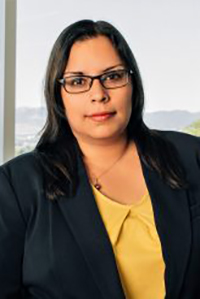Date/Time
Date(s) - 01/10/2022
9:35 am - 10:30 am
Categories
Idalis Villanueva Alarcón, Ph.D.
Associate Professor
UF Department of Engineering Education
Title: From seekers to agents: Uncovering how individuals navigate their engineering environments via hidden curriculum
Abstract: In engineering, the issue of underrepresentation and minoritization are topics of high debate amongst engineering departments in the U.S. and internationally. While there have been many approaches to tackling this issue, one underexplored area is around hidden curriculum. Hidden curriculum represents the unacknowledged and oftentimes ‘hidden’ lessons or messages in working or learning environments that hinders many groups from navigating their environments successfully. This session will introduce the audience to the concept of hidden curriculum, how it is perceived by faculty and students and how an individual’s response to the acquired hidden curriculum may serve to reinforce or mitigate the status quo in engineering. If time permits, a case study will be shared with the audience for a more interactional discussion.
Bio: For the past 10 years, Dr. Villanueva has worked on several engineering education projects where she derives from her experiences in engineering to improve outcomes for minoritized groups in engineering using mixed-and multi-modal methods and approaches. She currently is an Associate Professor in the Engineering Education Department at the University of Florida. In 2019, she received the Presidential Early Career Award for Scientists and Engineers (PECASE) award for her NSF CAREER project on hidden curriculum in engineering. Dr. Idalis Villanueva has a B.S. degree is in Chemical Engineering from the University of Puerto Rico at Mayagüez and a M.S. and Ph.D. degree in Chemical and Biological Engineering from the University of Colorado-Boulder. Soon after, she completed her postdoctoral fellowship from the National Institutes of Health in Analytical Cell Biology in Bethesda, Maryland and worked as a lecturer for 2 years before transitioning to a tenure-track in engineering education. Her experiences as a first-generation engineer, Latinx, woman of color, introvert, and mother has shaped the lens and approaches that she uses in her research. She hopes that her work will not only challenge normative ways of knowing but also research scholarship in critical and equitable ways.

